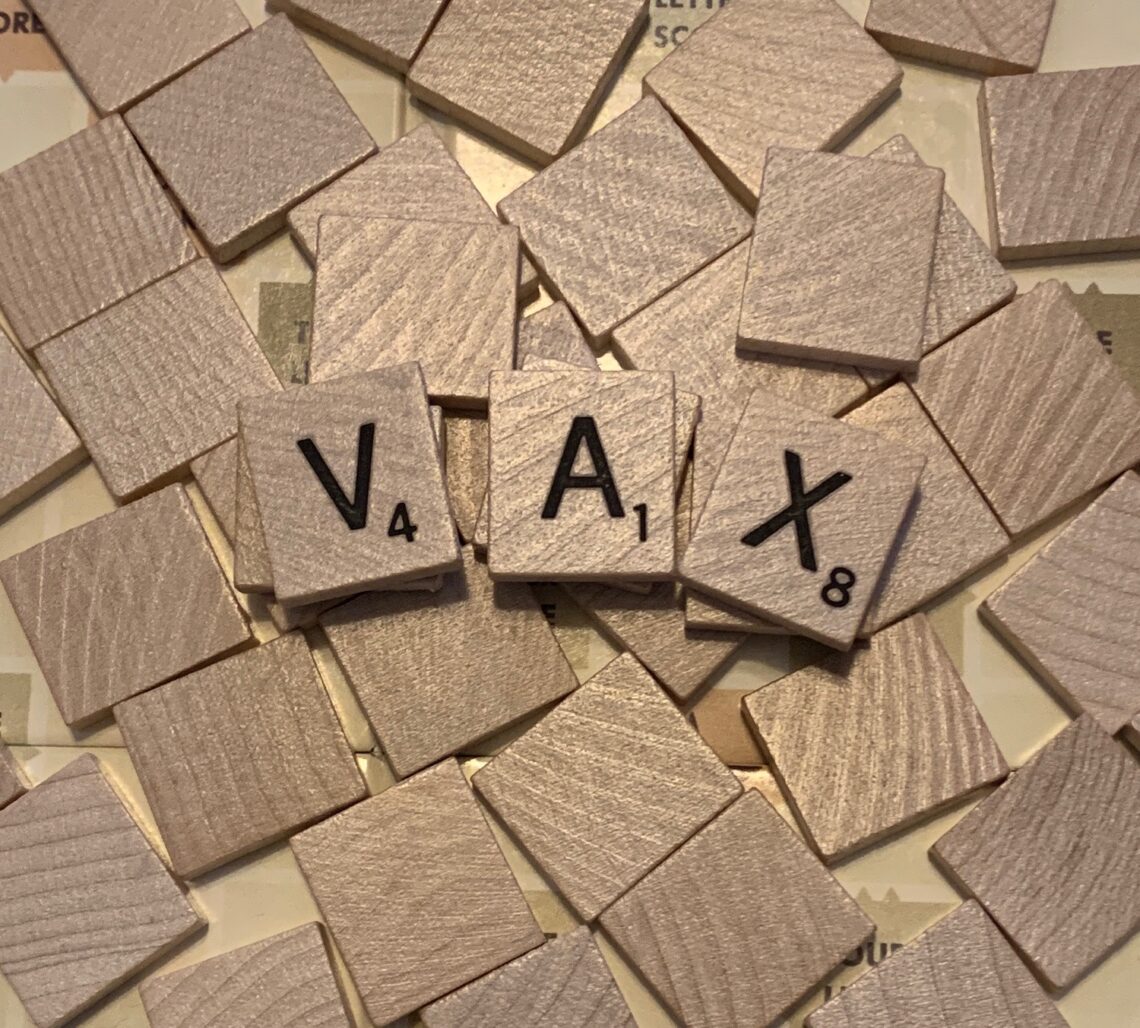Interestingly, at least I think so, lexicographers at Oxford English Dictionary have chosen their 2021 Word of the Year. It’s “vax.”
Due to the COVID-19 pandemic, variations on words related to vaccines have spiked in frequency this year, with double-vaxxed, unvaxxed and anti-vaxxer all seeing a surge.
Vax was the obvious choice, since it has made “the most striking impact,” said Fiona McPherson, senior editor of OED, the definitive record of the English language, in a recent BBC interview.
“It goes back at least to the 1980s, but according to our corpus, it was rarely used until this year,” she added.
I love how those sneaky-smart Britons slip a Latin word such as “corpus” into an everyday sentence with ease. Corpus as in body, but referring to a large collection of work, as in written texts. (Without pesky emojis, I trust.)
The folks at Oxford Languages gather news content and update their corpus daily. It contains more than 14.5 billion words for lexicographers to search and analyze. Talk about job security.
According to Oxford University Press, some past words of the year include:
- 2019: climate emergency
- 2018: toxic
- 2017: youthquake
- 2016: post-truth
- 2015: Emoji tears of joy
Yawn. “Post-truth”? What the heck happened in 2016? Oh, that. (Emoji pile of poop.)
In 2020, Oxford’s corpus of lexicographers did not choose a single word of the year. They decided it was unprecedented with too many contenders. (Also unprecedented was the fact that I turned 60 and blew out my candles with a 900-watt hair dryer.)
So, the 2020 words ended up being those that shaped the pandemic, such as “coronavirus,” “lockdown,” “remote working” and “ordering online and having your groceries delivered since you’re scared shitless to shop.”
Back to McPherson and this year’s word.
“When you add to that its versatility in forming other words – vaxxie, vax-a-thon, vaxinista – it became clear that vax was the standout in the crowd,” she said, adding that vax and vaxx are both accepted spellings, but the form with one “x” is more common.
And as any “Scrabble” player worth her salt knows, “vax” will score you a cool 13 points. Not too shabby for a three-letter word. (Yes, honey, you can use it.)
According to OED, all of these vax words ultimately come from the Latin word vacca, which means cow. This is due to English scientist Edward Jenner’s pioneering work on vaccination against smallpox using cowpox, a mild infection that occurs in cows.
It’s a word I am familiar with since my bilingual northern Italian mother used to say vacca on occasion when referring to someone, usually a woman, who had annoyed her.
It is the equivalent of calling someone a heifer, also not nice, unless she’s a bovine named Elsie. I’m not proud of this stain on our family history.
To be honest, I wasn’t familiar with the term vaxxie and couldn’t reach my 15-year-old great-niece, so I asked Alexa, who was busy blasting Maddie’s Spa station. “Alexa, what does vaxxie mean?”
“Vaxxie. Definition: A photograph of oneself taken during (or immediately before or after) a vaccination, especially one against COVID-19, and typically shared on social media; a vaccination selfie,” Alexa said, adding that vaxxies were more tolerable on social media than photos of your plated food.
Full disclosure: As a fully-vaxxed vaxinista, I got my booster last Monday at the Meijer store near us. One person was ahead of me.
It was a piece of cake, which I may or may not have eaten after (not during or before) my vax. Sadly, I did not take a vaxxie, so you’ll have to trust me on this.
According to the Centers for Disease Control and Prevention, as of Nov. 13, nearly 195 million Americans, or 59% of people in the United States, are fully vaxxed.
That’s good, but not good enough.
We’ve got to protect ourselves and others to get through this. Then go eat cake.




2 Comments
Julie M Sayers
I love your emoji for 2016. Very appropriate!
Jennifer John
Thanks, Julie.❤️😝